Review: Donald MacPherson: A Celebration
Donald MacPherson: A Celebration
National Piping Centre
August 10, 2022
The 100th birth-year of Donald MacPherson, one of the greatest Highland pipers in history, was celebrated before a small gathering in the centre’s auditorium at the National Piping Centre and online.
The event was hosted by MacPherson’s long-time pupil and Highland Society of London Gold Medallist Stuart Shedden, who guided the audience through MacPherson’s piping life and his own experience with the master. Shedden talked about the more than 1,000 hours spent with him at lessons, which began after he started with MacPherson’s brother, Alistair.
Shedden referenced a historic date in 1934 when 12-year-old Donald MacPherson got the notion to go along to the local Boys Brigade band. He was immediately drawn not to the pipes, but to the snare drum. His father, Iain, quickly disabused him of the idea, and set about teaching him the pipes, even though MacPherson at that time wasn’t even aware he played.
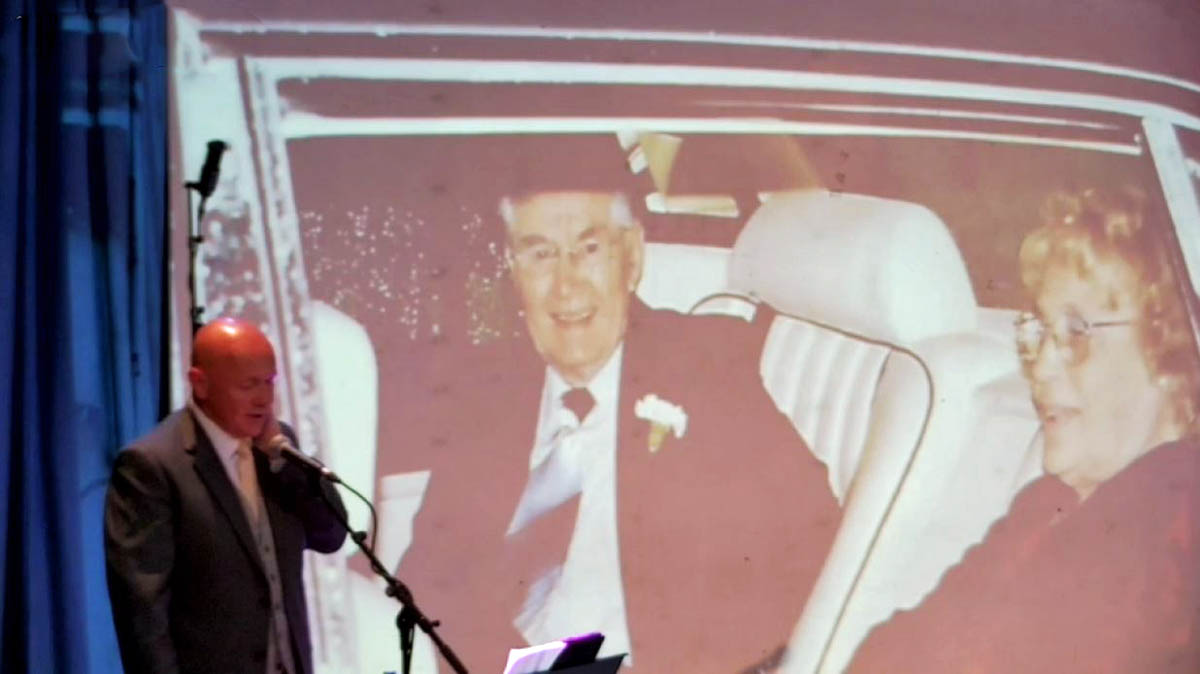
Donald MacPherson started with a “makey-up” set of pipes cobbled together, which he said his father “got going like bells,” and quickly progressed to junior competitions and rafts of prizes.
Shedden is a talented story-teller, and he commanded the event with a lively and entertaining, well prepared, researched and delivered discourse that included many humourous anecdotes. His recounting of MacPherson’s days with the Royal Air Force during World II was particularly engaging, including the telling of a crash when MacPherson broke his arm in 1945 that kept him from piping for a year.
“The sign of sincerity is a good handshake,” Shedden quoted his own father as saying, and he stressed that MacPherson always greeted him at the door before a lesson with a firm handshake.
A story about MacPherson competing before Robert Brown and Robert Nicol and finishing second with his rendition of “The Old Men of the Shells” was explained to him by Brown as due to a tiny variation in timing led to Shedden quoting MacPherson as saying, “No one has a monopoly on taste.”
Another of MacPherson’s pupils, the Gold Medallist Douglas Murray, played a selection of light music by his teacher, underscoring MacPherson’s often under-appreciated creativity as a composer. The examples reminded us that his tunes, such as “Mrs. Donald MacPherson” and “Echoes of Oban,” always put memorable and attractive melody first, including the less-heard jig, “The Little Red Tin,” named for MacPherson’s famous container for the reeds that led him to massive amounts of major prizes, including the record nine Northern Meeting Clasps that he gained in his career that included a decade-long hiatus from competition.
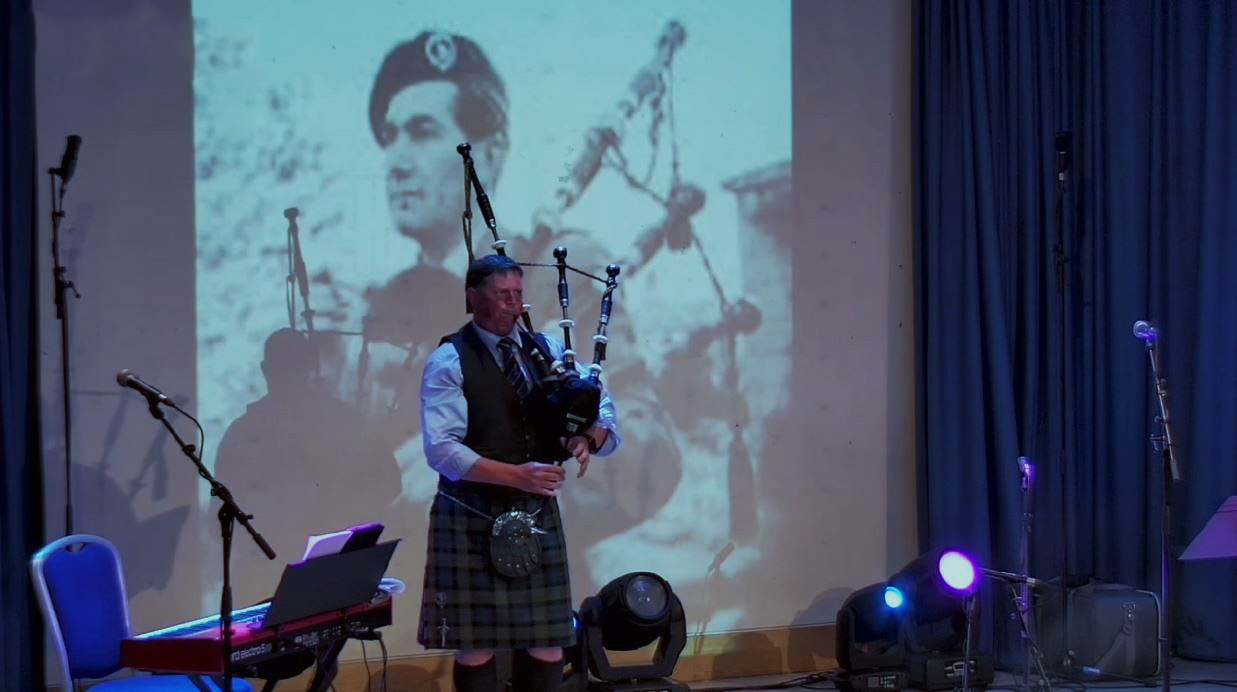
Murray’s rendition of the ground and first variation of “Catharine’s Lament,” as taught to him by MacPherson, was a sympathetic and sensitive interpretation of the small, subtle piece all too often wrongly considered a tune for novices. Murray revealed that his sessions with MacPherson were only about a half-hour, just enough time to go over some light music and a piobaireachd. He concluded with the ground and first variation of “I Got a Kiss of the King’s Hand,” which led Murray to good competition success delivering the piece in MacPherson’s inimitable style.
Stuart Shedden’s son, David, who also was MacPherson’s student in the latter part of his life, also performed, demonstrating the terrific talent he shows in his work on the Celtic folk scene with his group, Assynt. The younger Shedden delivered more MacPherson compositions, appropriately accompanied by pianist Chris Gray. MacPherson spent 10 years learning and studying piano, when he deviated from piping competitions.
Each also offered entertaining reminiscences from their lengthy relationship with their “always kind and supportive” instructor.
Did you know that MacPherson classic jig “The Curlew” was inspired by him and his brothers whistling the call of the curlew to each other when they were out playing? That was a typical anecdote from Shedden, as well as the story about how he acquired his R.G. Lawrie pipes that he used throughout his career. The instrument was sold after he passing for nearly $50,000.
MacPherson once loaned his pipe chanter to Douglas Murray, but Murray couldn’t fathom how his teacher was able to get the sound he did from it, as well as MacPherson’s advice to “play your ‘bad’ reeds when you practice, and save your ‘good’ reeds for competition.”
A story about Donald MacPherson withdrawing from a major contest in the 1970s after learning that his former great friend Seumas MacNeill was judging. The two had fallen out when they each taught at the College of Piping, resulting in an acrimonious episode that lasted the rest of his life.
The two-hour event was well planned, informative, appreciative and, most of all, entertaining, thanks in large part to Stuart Shedden’s excellent emceeing. It’s a shame that more didn’t take advantage of this once-in-a-century opportunity but, for those who did, “Donald MacPherson: A Celebration” was a definite highlight of the Piping Live! festival.



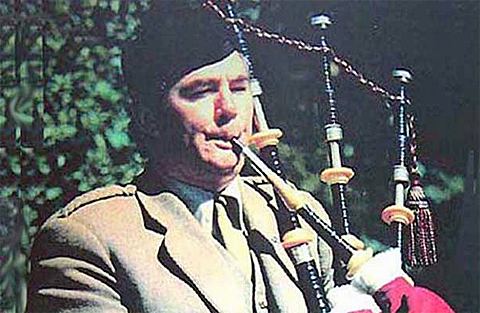
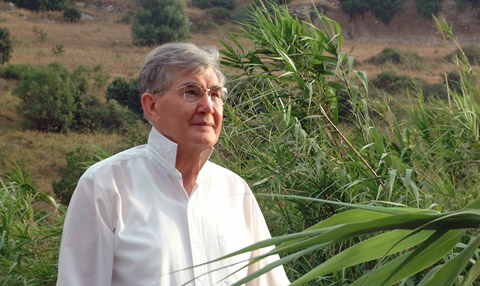
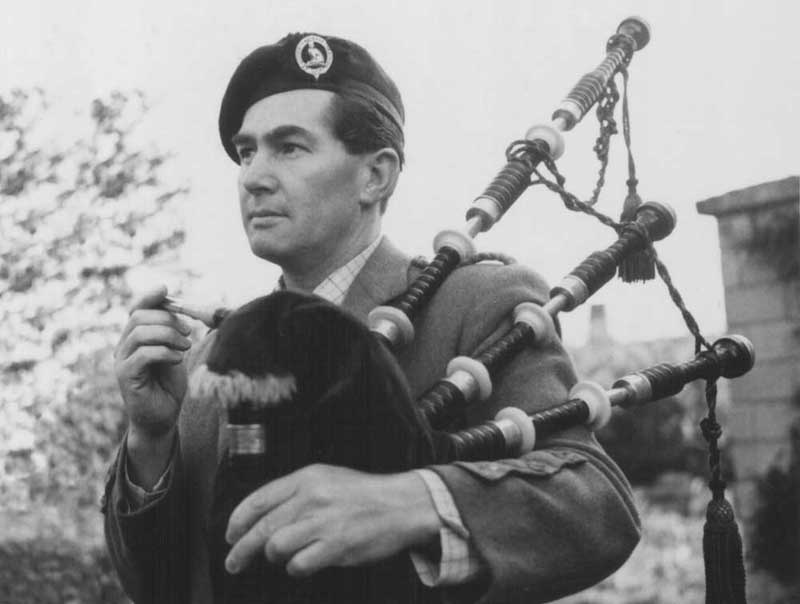
NO COMMENTS YET